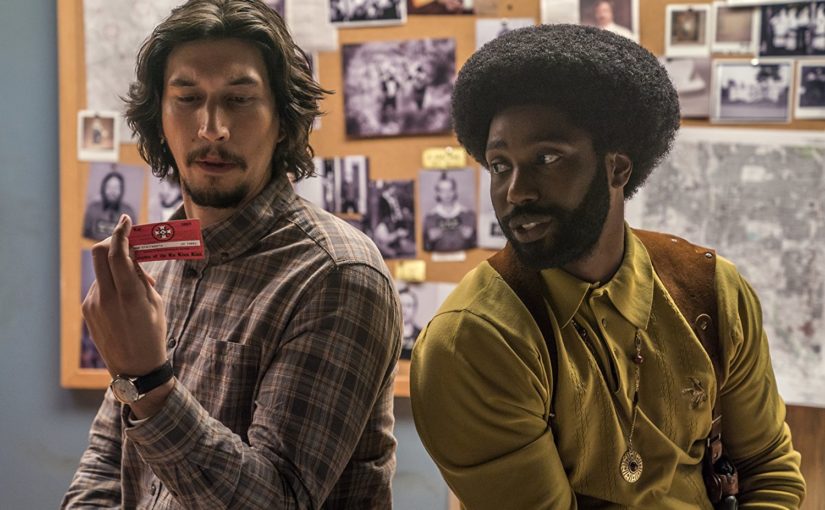Based on a true story (or as the opening credits state “some fo’ real, fo’ real s—“), Spike Lee’s “BlacKkKlansman” follows Ron Stallworth (John David Washington), the Colorado Springs Police Department’s first black police officer, as he attempts to infiltrate the local chapter of the Ku Klux Klan in 1979.
Now, if you know anything about the KKK and their beliefs, you can already imagine the difficulty of pulling off such a ruse. However, Stallworth is pretty sharp and thinks things through. Well, other than using his real name of course.
Stallworth uses his ability to code-switch (and the Klan members’ racist notions of African Americans and their language capabilities) to establish an over the phone relationship with a seemingly friendly Klansman named Walter (Ryan Eggold). In order to take their relationship to the next level, Walter and Stallworth set up a meeting. With the help of the ethnically Jewish Detective Flip Zimmerman (Adam Driver) to play the White Ron Stallworth that meets with the Klan, “the Stallworth Brothers” eventually gain the trust of the members and start gathering intelligence on the racist organization.
While the movie is light on plot, the cast of characters is engaging enough for the 2 hours and 15 minute runtime to not feel so daunting. A big reason for that is every side character is given ample screen time to flesh out the world and add some truly unnerving quirks to the story. Some highlights include the perpetually drunk Klansman with a penchant for explosives, Ivanhoe (Paul Walter Hauser), and the two-faced, syrupy sweet housewife Connie (Ashlie Atkinson).
While not exactly the comedy the marketing for the movie portrays, the ridiculous premise of the movie definitely provides for some humorous moments. Some such moments elicited laughter from the audience in my theater before reality set in for most, quickly sucking the air out of the room as individuals pondered the current state of the nation. It is in these moments that Lee is at his best.
As for the comedy that isn’t quite as truthfully searing, much of it comes from the tension of what the audience knows and what some characters do not, such as with Stallworth’s phone calls with the Grand Wizard of the KKK, David Duke, played by Topher Grace (“That ’70s Show”; “Spider-Man 3”). Grace’s casting may be eyebrow raising for some, but the former TV star is absolutely magnetic in his childishly naive portrayal of the Klan leader.
What “BlacKkKlansman” lacks in subtlety, it certainly makes up for with emotional punch. And boy does it pack a punch, and, quite frankly, it never stops punching. I won’t reveal the ending, but Lee reserves his biggest gut punch right before the end credits begin to roll. It shouldn’t come as a surprise given the heavy-handed messaging throughout the film, but it nonetheless left me both saddened and enraged.
“BlacKkKlansman” made some noise when it first premiered at the Cannes Film Festival in France and its subsequent release in the U.S. earlier in August, and it surely will again once awards season comes around. For moviegoers seeking a well-crafted film with timely critiques of American history and current politics, “BlacKkKlansman” is a must watch.
